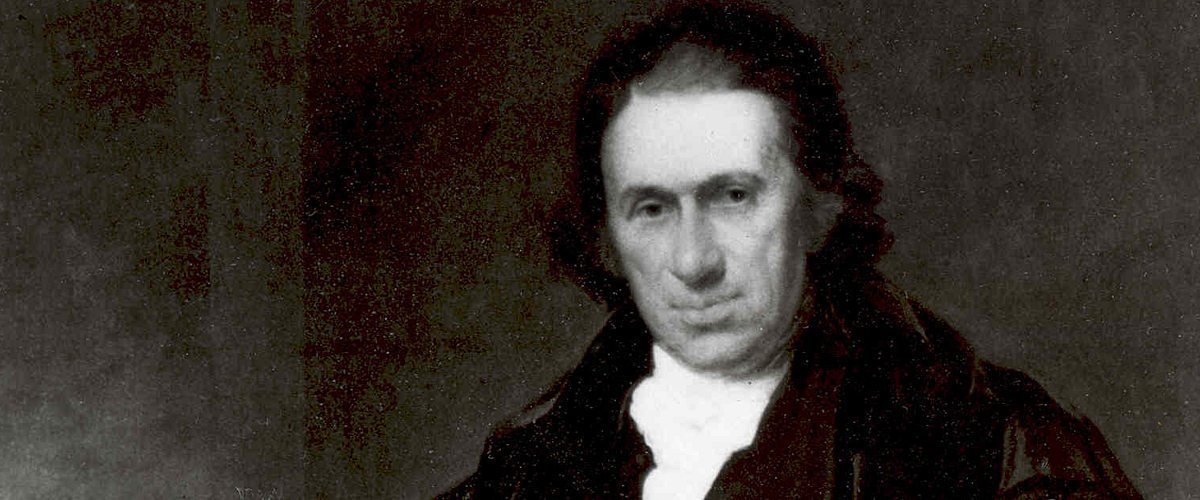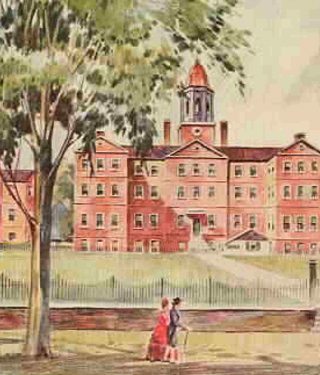It Happened Here: Dr. Samuel Bard
The founder of what became NewYork-Presbyterian Hospital and the driving force behind what became the city’s first medical school left an enduring legacy.

When Samuel Bard began his medical career in the 1760s after completing his medical studies abroad, he joined the practice of his father, Dr. John Bard, a renowned physician and friend of Benjamin Franklin.
But the younger Bard had aspirations beyond routine care. While studying in Edinburgh, Scotland, he learned of plans to open the American Colonies’ first medical school, the University of Pennsylvania School of Medicine, which enrolled its first students in 1765.
“I wish with all my heart, they were at New York that I might share amongst them, and assist in founding the first medical college in America,” he wrote to his father in 1762. “I own I feel a little jealous of the Philadelphians, and should be glad to see [a] college of New York at least upon an equality with theirs.”
Shortly after his return home, Dr. Bard began planning what would become the second medical school in America. His vision was realized when the Board of Governors of King’s College agreed to open a teaching facility in 1767. In his speech to the school’s first graduates two years later, Bard unveiled his next goal: After disseminating the Colonies’ first code of medical ethics, he called for the creation of the city’s first public hospital.
In 1771, a royal charter established the Society of the New York Hospital. As plans were developed, Dr. Bard agreed to be the hospital’s first attending physician. But a fire in 1775, when construction of the hospital was almost complete, set the project back, and the start of the Revolutionary War delayed reconstruction. As the war began, Dr. Bard moved his family to Hyde Park, New York, and Dr. Bard eventually joined them and established a practice.

New York Hospital, circa 1790s
When King’s College reopened in 1784 as Columbia College, Dr. Bard was named a trustee and returned to the city and his work as a physician to New York’s most prominent citizens, including founding fathers. In the summer of 1789, Dr. Bard was summoned to the lower-Manhattan bedside of George Washington to perform a lifesaving operation; the recently inaugurated president was stricken with a high fever and pain in his left thigh, which was later determined to be a tumor. Bard also delivered Alexander Hamilton’s son Philip and served (with his protégé David Hosack) as a family physician to the Hamilton family.
Dr. Bard later pushed to rebuild New York Hospital, which opened in early 1791 on what is now Broadway between Worth and Duane streets. That year, Dr. Bard was named dean of Columbia College’s medical school and ushered in the training of students in the wards of New York Hospital.
Dr. Bard remained devoted to teaching and writing after his retirement in 1797. In 1811, he was elected president of the College of Physicians and Surgeons, the medical school of Columbia University. In his final years, he wrote the first textbook on midwifery, advocated for a full liberal arts program for pre-medical students and urged the state legislature to regulate the practice of medicine. He died May 24, 1821. Bard Hall was erected on the campus of Columbia-Presbyterian Medical Center in Dr. Bard’s honor in 1931.
